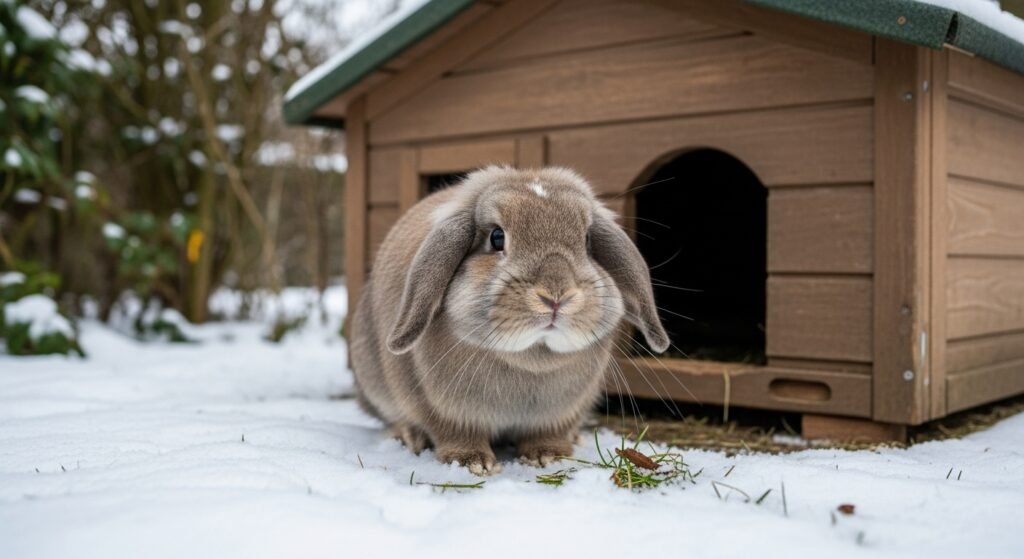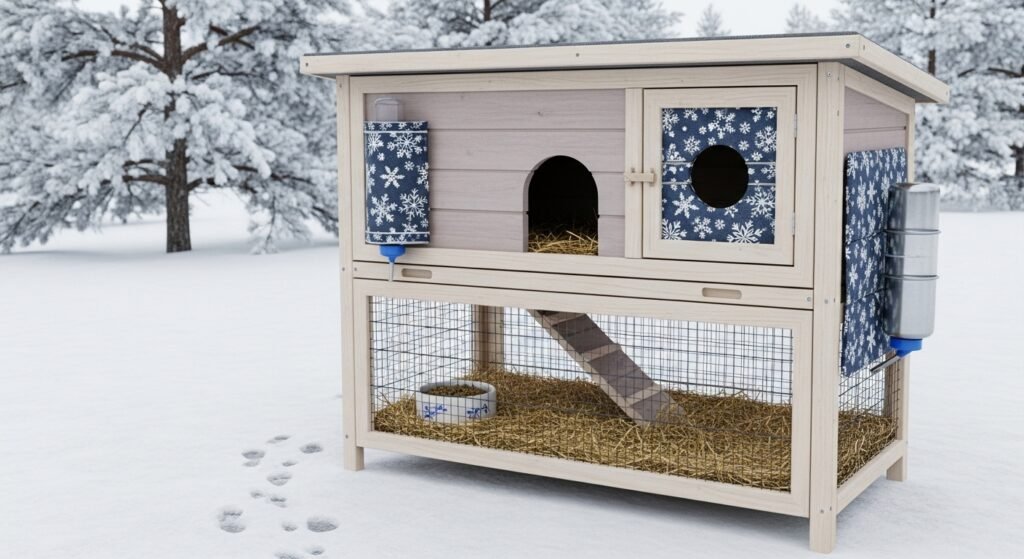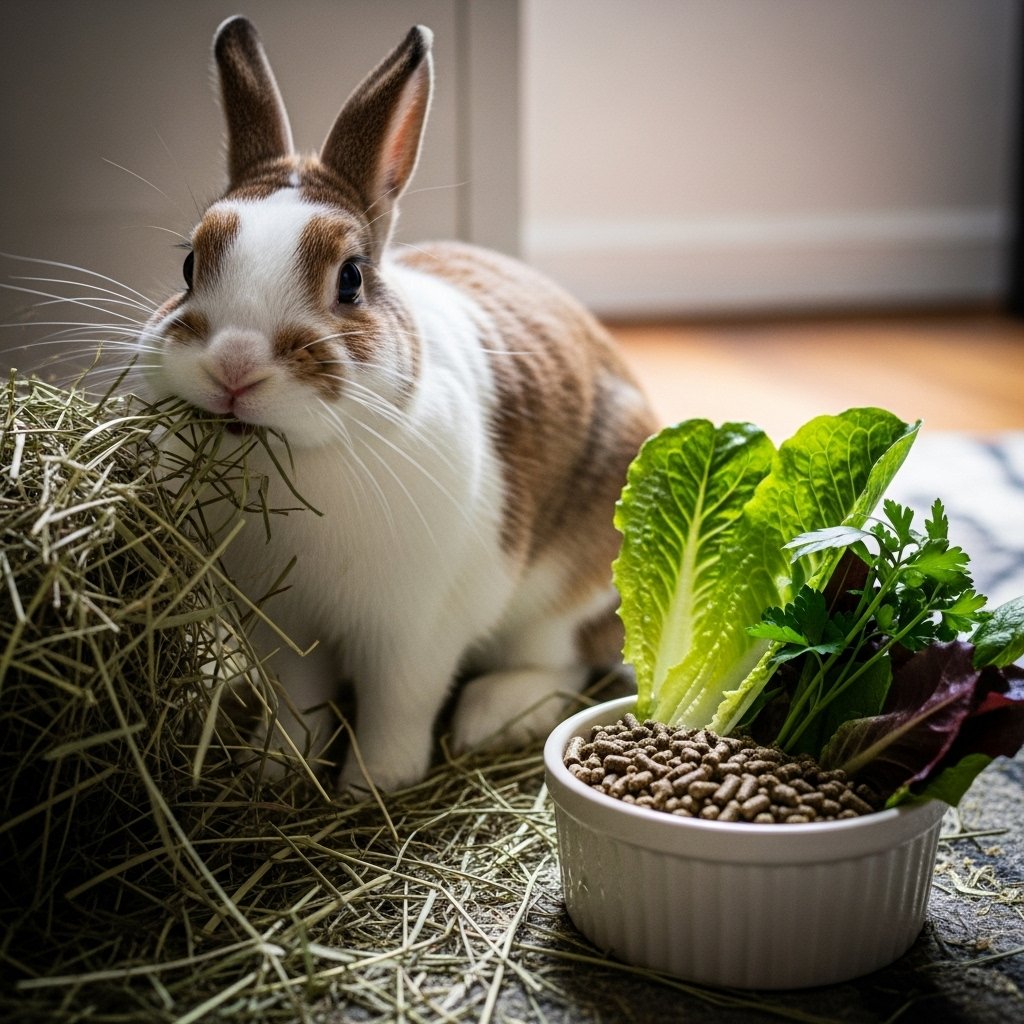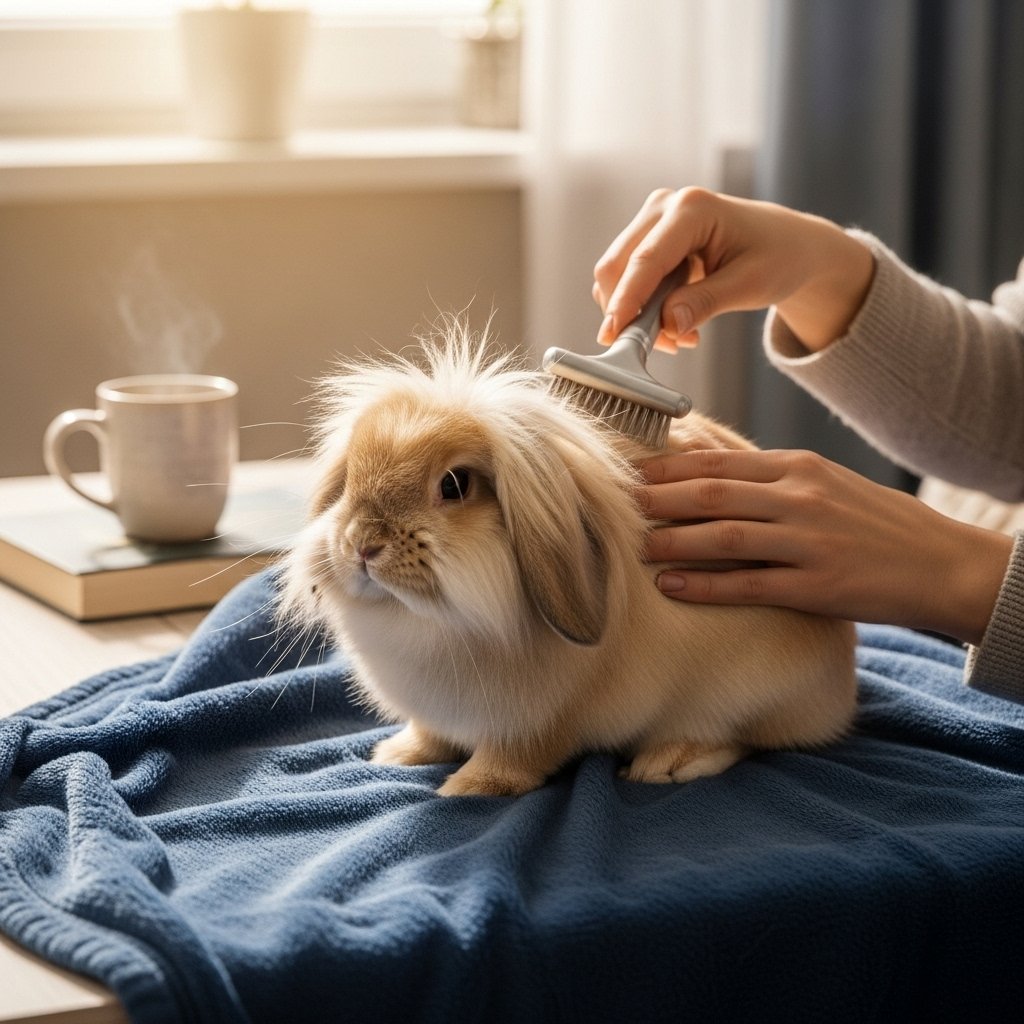
How to Care for Rabbits in the Winter
When temperatures drop, many U.S. pet parents worry about their furry friends and rabbits are no exception. While bunnies grow thicker coats for winter, they’re still vulnerable to cold drafts, dampness, and frozen water.
Whether your rabbit lives indoors or outdoors, winter brings unique challenges. This guide covers everything you need to know to keep your bunny warm, comfortable, and healthy during the coldest months.
Can Rabbits Handle Cold Weather?
Rabbits are surprisingly hardy animals. With a healthy coat and dry shelter, they can tolerate chilly temperatures better than heat.
However, prolonged cold, wind, or wet conditions can cause hypothermia and frostbite especially for:
- Young or senior rabbits
- Small breeds
- Short-haired rabbits
- Rabbits kept outdoors year-round

Indoor vs. Outdoor Rabbits in Winter
Indoor Rabbits
Indoor rabbits should be kept in a draft-free, well-ventilated area away from heaters or open windows.
- Maintain temperature between 60–70°F.
- Use soft bedding like fleece or towels (avoid loose fabric they can chew).
- Keep them active with safe indoor playtime.
Outdoor Rabbits
If your rabbit lives outside, take extra precautions:
- Insulate their hutch with foam boards or blankets (on the outside, not inside for chewing safety).
- Raise the hutch off the ground to prevent moisture.
- Add extra straw or hay for nesting warmth.
- Cover the hutch with a waterproof tarp at night.

Winter Diet for Rabbits

Rabbits need more calories in winter to maintain body heat especially outdoor bunnies.
- Offer unlimited timothy hay for digestion and warmth.
- Continue fresh greens like romaine, kale, or cilantro (not frozen).
- Provide pellets with balanced nutrition.
- Ensure fresh, unfrozen water at all times check bowls frequently.
Keep Water from Freezing
Water bottles and bowls can freeze quickly outdoors. Solutions:
- Use insulated bottle covers or heated water bowls.
- Refill multiple times daily.
- Keep backup bottles inside during freezing nights.
Dehydration is a serious risk even in cold weather!
Keep the Hutch Clean and Dry
Moisture is your rabbit’s enemy in winter. Wet bedding or droppings can lead to illness and frostbite.
Tips:
- Clean the hutch every 1–2 days.
- Use absorbent straw or paper bedding.
- Ensure good ventilation without drafts.
Grooming During Winter
Rabbits shed heavily as they grow their winter coat. Regular grooming helps prevent matting and keeps fur healthy.
Tips:
- Brush weekly for short-haired breeds; daily for long-haired ones.
- Check for damp or matted fur.
- Trim nails (indoor rabbits may be less active).

Keep Them Active Indoors
If it’s too cold outside, give your bunny indoor exercise opportunities:
- Create a bunny-proof play zone.
- Add tunnels, cardboard boxes, or treat balls.
- Supervise playtime to prevent chewing hazards.
Rabbits need daily activity for physical and mental health.
Health Signs to Watch
Even well-cared-for rabbits can get sick in winter. Watch for:
- Lethargy or shivering
- Cold ears, nose, or paws
- Loss of appetite
- Runny nose or eyes
Contact a rabbit-savvy vet if you notice these symptoms.
When to Call the Vet
Call your vet if your rabbit shows:
- Weight loss or dehydration.
- Breathing difficulties or runny nose.
- Limping (possible frostbite).
- Refusal to eat or drink.
Quick care can prevent serious complications.
Final Thoughts
Winter doesn’t have to be tough for your bunny. With warm housing, proper diet, and daily care, your rabbit can stay happy, cozy, and full of energy all season long.
Whether they’re indoor snugglers or outdoor explorers, rabbits rely on us to keep their tiny paws and hearts warm.



